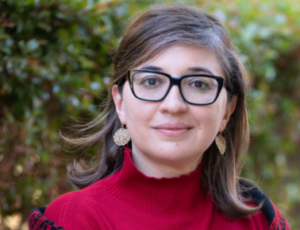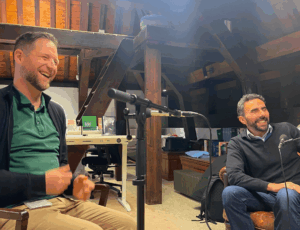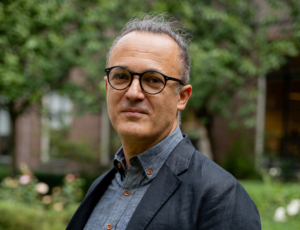
Sanne de Boer on organized crime against the backdrop of global problems
24 October 2023Sanne de Boer will be NIAS Journalist in Residence from February to June 2024. At the invitation of the Fonds Bijzondere Journalistieke Projecten and NIAS, De Boer will work on her second book analyzing current dilemmas and difficulties in fighting transnational organized crime and considering these issues against the backdrop of other pressing global problems, such as social-economic inequality, migration, and the climate crisis.
A discomforting reality
De Boer: “Seventeen years ago, I was introduced to the beautiful region of Calabria in Southern Italy. While I was working and relishing the quiet rural life, a discomforting reality revealed itself to me: the presence of the local mafia, the ’Ndrangheta. Although the Calabrian mafia was relatively unknown, it had already established itself as a highly influential international criminal network. Because of their dominant position as cocaine smugglers and their remarkable capacity to adapt to and profit from our global economic system, ’Ndrangheta clans have become unobtrusive yet important players in the legal economy and are embedded at every level of society. In October 2020 I published my first book (Mafiopoli: een zoektocht naar de ’Ndrangheta, de machtigste mafia van Italië, Nieuw Amsterdam). With my second book, I will provide insight into how the growth of international organized crime is related to the impasse we face searching for answers to our global problems. I will also explore solutions that can contribute to making our society more resilient against the undermining influence of international organized crime.”
Investsments in fighting drug-related crime
Due to increasingly disruptive violence from drug-related organized crime groups who are known collaborators of the ’Ndrangheta, Sanne de Boer’s research has become more urgent and relevant in The Netherlands. The Dutch government invests in fighting drug-related crime more determinedly and has expressed its desire to learn from Italian anti-mafia law enforcement practices. Some repressive measures have already been implemented. Right now, it is more important than ever to pose critical journalistic questions about the effectivity of these and other proposed measures.
Assumptions on mafia crime
De Boer will research what assumptions exist about mafia crime and to what extent they are confirmed by legal and criminological research. She wants to know how the current way of fighting mafia crime inside and outside Italy affects public perception of mafia crime, and what role the media play. Do misconceptions in our perception of mafia and related organized crime possibly hinder a more effective fight?
Investment in prevention
It’s the question whether stronger repression can sustainably promote the international fight against organized crime when, as in Italy, there is relatively little investment in prevention such as poverty reduction, youth care and reintegration.
Building Resilience
Sanne will explore in what ways mafia organizations such as the ‘Ndrangheta interact with global issues such as economic inequality, migration, the energy transition and climate emergency. Can more active detection and prosecution of economic crimes, human rights violations and environmental crime perhaps also contribute to the repression of international organized (drug) crime?
The Journalist-in-Residence Fellowship is for journalists with a keen interest in scholarly research who need an extended period of time to focus on a longer piece of journalistic work. Previous fellows include Niels Matthijssen, Lynn Berger, Saar Slegers, Mark Lievisse Adriaanse en Fleur van der Bij. The programme is a collaboration between NIAS and the Fonds Bijzondere Journalistieke Projecten. Read more about Journalist-in-Residence Fellowship.



